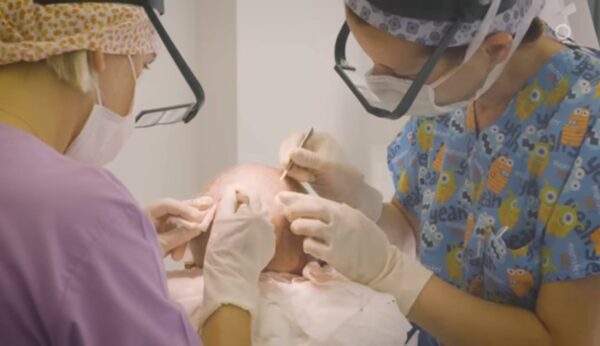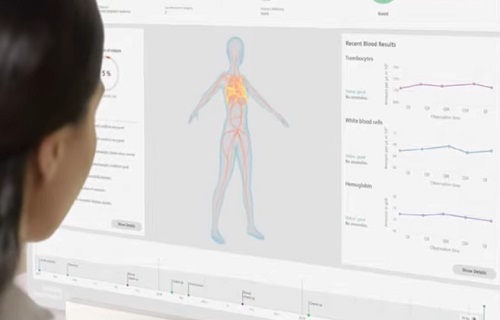What is Luteinizing Hormone?
Luteinizing Hormone (LH) is a hormone made by the pituitary gland. It plays a key role in reproduction of;
- In women; LH triggers ovulation (the release of an egg) and helps maintain the menstrual cycle.
- In men; it stimulates the production of testosterone which is essential for sperm production.
It’s crucial for fertility in both sexes.
What is Function of Luteinizing Hormone in Men?
1. Stimulation of Leydig Cells
LH binds to specific receptors on Leydig cells (which are located in the testes). This binding activates the cells to produce testosterone (primary male sex hormone)
2. Testosterone Production
- Spermatogenesis: Testosterone works with follicle-stimulating hormone (FSH) to support the development and maturation of sperm in the seminiferous tubules.
- Development of male reproductive organs: Testosterone is essential for the growth and maintenance of the testes, epididymis, prostate gland and seminal vesicles.
3. Development of Secondary Sexual Characteristics
Testosterone by stimulated by LH, is responsible for male physical traits.
- Deepening of the voice
- Increased body and facial hair
- Muscle mass and strength
- Bone density
4. Regulation of Libido and Mood
Testosterone also influences male libido (sex drive) and plays a role in maintaining mental well-being.
5. Feedback Mechanism
Testosterone levels are regulated through a feedback loop involving the hypothalamus and pituitary gland;
- When testosterone levels are sufficient hypothalamus reduces gonadotropin-releasing hormone (GnRH) secretion. This lowers LH production keeping testosterone levels stable.

What Are The 5 Symptoms of Low Luteinizing Hormone in Men?
1. Reproductive and Sexual Symptoms
- Low Libido: Reduced sex drive is one of the earliest and most noticeable symptoms. Testosterone is essential for maintaining a healthy libido.
- Erectile Dysfunction: Difficulty achieving or maintaining an erection could be seen because of insufficient testosterone levels.
- Infertility: Without enough LH which disrupts sperm production (spermatogenesis) and cause to reduced sperm count and motility.
2. Physical Symptoms
- Loss of Muscle Mass and Strength: Testosterone supports muscle growth and repair. Low levels can cause to muscle weakness and shrinkage.
- Increased Body Fat: Men with low testosterone may notice an increase in fat accumulation especially around the abdomen.
- Reduced Hair Growth: Body and facial hair may become sparse or stop growing altogether.
- Gynecomastia (Breast Development): Hormonal imbalances may cause to the development of breast tissue in men.
3. Symptoms in Younger Males (Delayed Puberty)
- Underdeveloped Testes and Genitalia: Testicles and penis may not grow to their full size.
- Lack of Secondary Sexual Characteristics: Minimal facial hair, absence of body hair and a voice that doesn’t deepen as expected.
4. General Symptoms
- Fatigue and Low Energy: Chronic tiredness is common because of reduced testosterone’s impact on overall vitality.
- Mood Changes: Depression, irritability, anxiety or difficulty coping with stress may arise.
- Brain Fog: Trouble concentrating and memory issues or lack of mental clarity.
5. Bone Health Issues
- Osteoporosis: Low testosterone cause to reduced bone density and increasing the risk of fractures.
- Joint Pain: Weakened bones and muscles can lead to joint discomfort.
What Are The Symptoms of High Luteinizing Hormone in Men?
1. Reproductive and Sexual Symptoms
- Low Testosterone Symptoms: Despite high LH levels, testosterone production may remain low because of primary testicular dysfunction.
- Low libido (reduced sex drive),
- Erectile dysfunction,
- Infertility (because of impaired sperm production).
2. Physical Symptoms
- Decreased Testicular Size: Testicular atrophy could be seen especially if the high LH is related to testicular damage or failure.
- Gynecomastia: Hormonal imbalances can cause to the development of breast tissue.
- Reduced Body and Facial Hair: Indicates diminished testosterone levels.
3. General Symptoms
- Fatigue and Low Energy: May result from low testosterone despite high LH levels.
- Mood Changes: Depression, irritability or anxiety may be present because of hormonal imbalances.
4. Bone and Muscle Issues
- Decreased Muscle Mass: Reduced testosterone levels affect muscle strength and size.
- Bone Weakness: Increased risk of osteoporosis due to low testosterone.
What Are The Causes of Low Luteinizing Hormone in Men?
1. Disorders of the Hypothalamus
Hypothalamus produces gonadotropin-releasing hormone (GnRH) (signals the pituitary to release LH). Problems with the hypothalamus can reduce or stop this signal and cause to low LH levels.
- Kallmann Syndrome: Rare genetic condition characterized by delayed or absent puberty and impaired sense of smell.
- Functional Hypothalamic Hypogonadism: Caused by stress, extreme exercise or significant weight loss.
- Brain Injury or Tumors: Trauma, surgery or tumors effecting the hypothalamus can disrupt its function.
2. Pituitary Gland Disorders
Pituitary gland is responsible for producing LH. If the gland is damaged or dysfunctional LH production decreases.
- Hypopituitarism: A condition that the pituitary gland doesn’t produce enough hormones.
- Pituitary Tumors: Noncancerous tumors (e.g., prolactinomas) could compress the gland and impair hormone production.
- Sheehan’s Syndrome (rare in men): Hypopituitarism because of to pituitary gland damage from severe blood loss or trauma.
- Infections: Diseases like tuberculosis, meningitis or syphilis can effect the pituitary gland.
3. Chronic Health Conditions
- Chronic Kidney Disease (CKD): Uremia and other metabolic disturbances can impair LH secretion.
- Liver Disease: Conditions like cirrhosis can disrupt hormonal balance.
- Obesity: Excess fat can change hormone regulation.
- Diabetes: Insulin resistance may contribute to hormonal imbalances.
4. Lifestyle and Environmental Factors
- Excessive Physical Stress: Overtraining or intense exercise without adequate recovery suppresses LH production.
- Malnutrition or Eating Disorders: Low calorie or nutrient intake reduces GnRH and LH secretion.
- Substance Use:
- Anabolic Steroids: Suppress the natural production of GnRH, LH and testosterone.
- Opioids: Long-term use can inhibit LH release.
- Excess Alcohol: Effects testosterone production by disrupting LH signaling.
5. Medications
- Glucocorticoids: Chronic use can suppress LH production.
- GnRH Agonists or Antagonists: Used to treat conditions like prostate cancer. They directly lower LH levels.
- Antipsychotics: Some medications may interfere with the hypothalamus-pituitary axis.
6. Genetic and Developmental Disorders
- Congenital Pituitary Deficiencies: Genetic conditions where the pituitary fails to produce adequate LH.
- Prader-Willi Syndrome: A genetic condition affecting multiple systems including hormone production.
7. Brain Trauma or Radiation
- Head Injuries: Damage to the hypothalamus or pituitary gland from trauma or surgery.
- Radiation Therapy: Treatment for brain or nearby tumors can impair LH secretion.
8. Aging
As men age there is a natural decline in GnRH and LH secretion. But excessively low LH in older men could indicate an underlying condition.
9. Idiopathic Hypogonadotropic Hypogonadism
In some cases; exact cause of low LH cann’t be identified and the condition is termed idiopathic (unknown origin).
What Are Normal LH Levels By Age?
Normal LH Levels in Men by Age
| Age Group | Normal LH Range (mIU/mL) |
|---|---|
| Prepubescent Boys | 0.1 – 6.0 |
| Puberty (Tanner Stage II-IV) | 0.3 – 10.0 |
| Adult Men (18–70 years) | 1.5 – 9.3 |
| Older Men (70+ years) | 3.1 – 34.0 |
What Are The Treatment Options Of Low Luteinizing Hormone in Men?
1. Hormone Replacement Therapy (HRT)
If low LH results in testosterone deficiency hormone replacement therapy can help.
- Testosterone Replacement Therapy (TRT): Administered by injections, patches, gels or pellets to restore normal testosterone levels.
- Benefits: Improves libido, energy, muscle mass, bone density and mood.
- Consideration: Doesn’t restore natural fertility; additional treatments may be needed for fertility concerns.
- Human Chorionic Gonadotropin (hCG): Mimics LH to stimulate testosterone and sperm production.
2. Medications to Stimulate LH Production
- Clomiphene Citrate: A selective estrogen receptor modulator (SERM) that stimulates the pituitary gland to produce more LH and follicle-stimulating hormone (FSH).
- Often used in men with secondary hypogonadism to improve fertility.
- GnRH Therapy: Pulsatile administration of gonadotropin-releasing hormone (GnRH) to stimulate LH and FSH production.
- Suitable for hypothalamic causes like Kallmann syndrome.
3. Treating Underlying Conditions
- Hypothalamic or Pituitary Disorders:
- Tumors: Surgery or radiation therapy could be required to remove pituitary or hypothalamic tumors.
- Infections: Treat underlying infections (e.g., tuberculosis, meningitis) with antibiotics or antiviral drugs.
- Chronic Illnesses:
- Manage diabetes, kidney disease or liver disease to minimize their impact on LH levels.
- Obesity: Weight loss through diet and exercise could be very helpful for normalize hormonal imbalances.

Advices For Balanced Luteinizing Hormone in Men
1. Maintain a Healthy Diet
- Eat Balanced Meals: Include a mix of proteins, healthy fats and complex carbohydrates to support hormone production.
- Essential Nutrients:
- Zinc: Found in shellfish, red meat, nuts and seeds, zinc supports testosterone and LH regulation.
- Vitamin D: Found in fatty fish, eggs or through sun exposure and supplements. Vitamin D enhances LH secretion.
- Magnesium: Found in leafy greens, nuts and whole grains. Magnesium plays a role in hormone balance.
2. Get Regular Exercise
- Strength Training: Boosts testosterone levels and indirectly supports LH production.
- Avoid Overtraining: Intense, prolonged exercise can suppress the hypothalamus-pituitary-testes axis and lowering LH.
- Aim for moderate-intensity exercise that balances endurance and strength.
3. Manage Stress
- Chronic stress increases cortisol levels and can suppress LH production.
- Stress-Reduction Techniques:
- Practice mindfulness or meditation.
- Engage in relaxing activities like yoga or deep breathing.
- Maintain a consistent sleep schedule.
4. Maintain a Healthy Weight
- Excessive body fat (especially around the abdomen) can disrupt hormonal balance by increasing estrogen levels and reducing testosterone so cause to altered LH levels.
- Aim for a healthy body weight through balanced nutrition and exercise.
5. Get Adequate Sleep
- Sleep is critical for the regulation of all hormones.
- Aim for 7–9 hours of quality sleep per night and avoid screen time before bed.
6. Avoid Hormone-Disrupting Substances
- Limit Alcohol Intake: Excessive alcohol consumption disrupts hormonal regulation and may reduce LH production.
- Avoid Steroids and Performance Enhancers: These suppress the natural production of LH and cause to long-term imbalances.
- Minimize Exposure to Endocrine Disruptors: Chemicals in plastics (e.g., BPA) and certain pesticides can interfere with hormone function.
7. Optimize Vitamin D Levels
- Low levels of vitamin D are associated with hormonal imbalances. Consider supplementation if levels are deficient. Especially in areas with limited sunlight.
8. Stay Hydrated
- Dehydration effects overall metabolic processes and hormone production. Drink plenty of water throughout the day.
We wish healthy and happy life to you. Also you can find advices and treatment options for erectile dysfunction in below:

